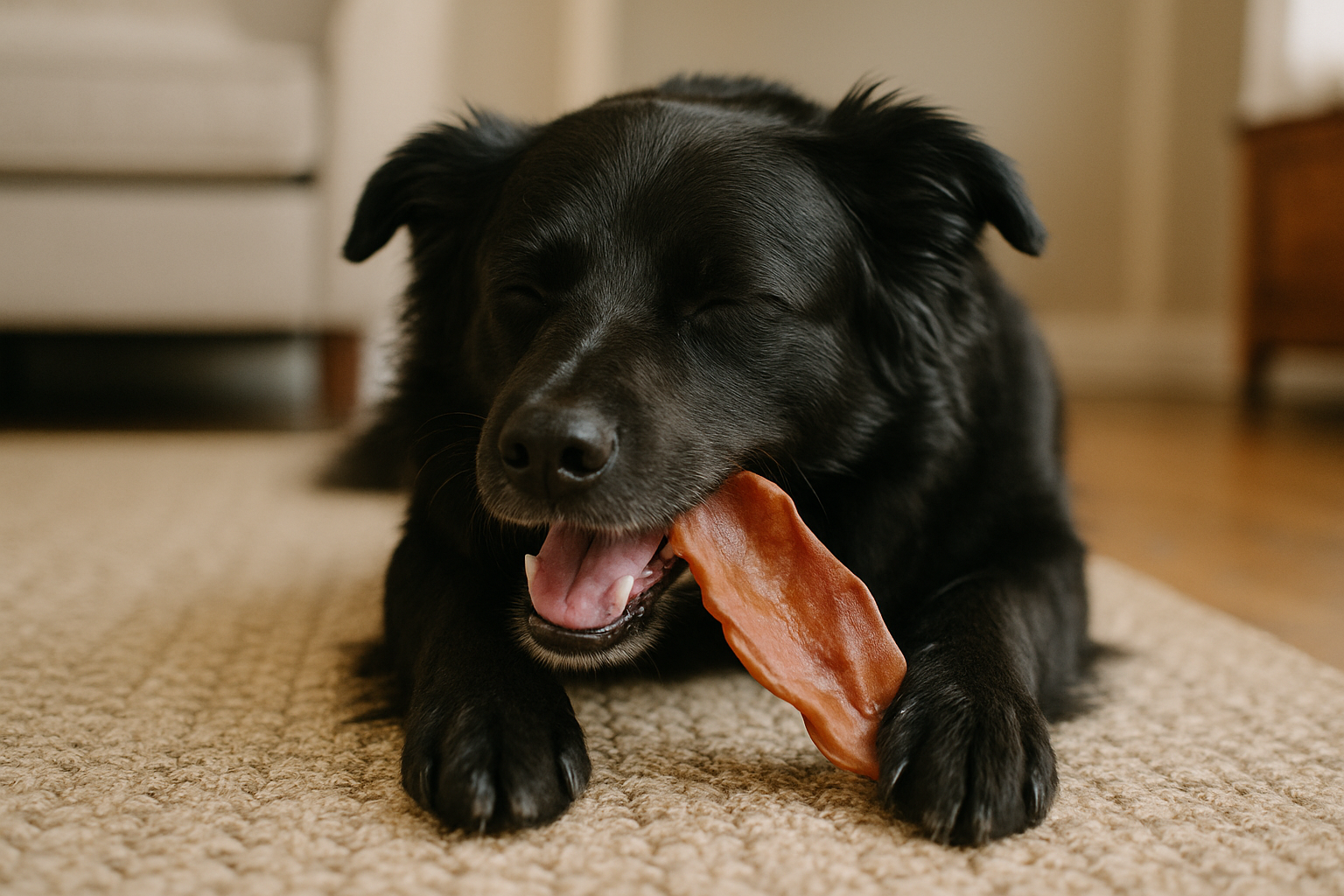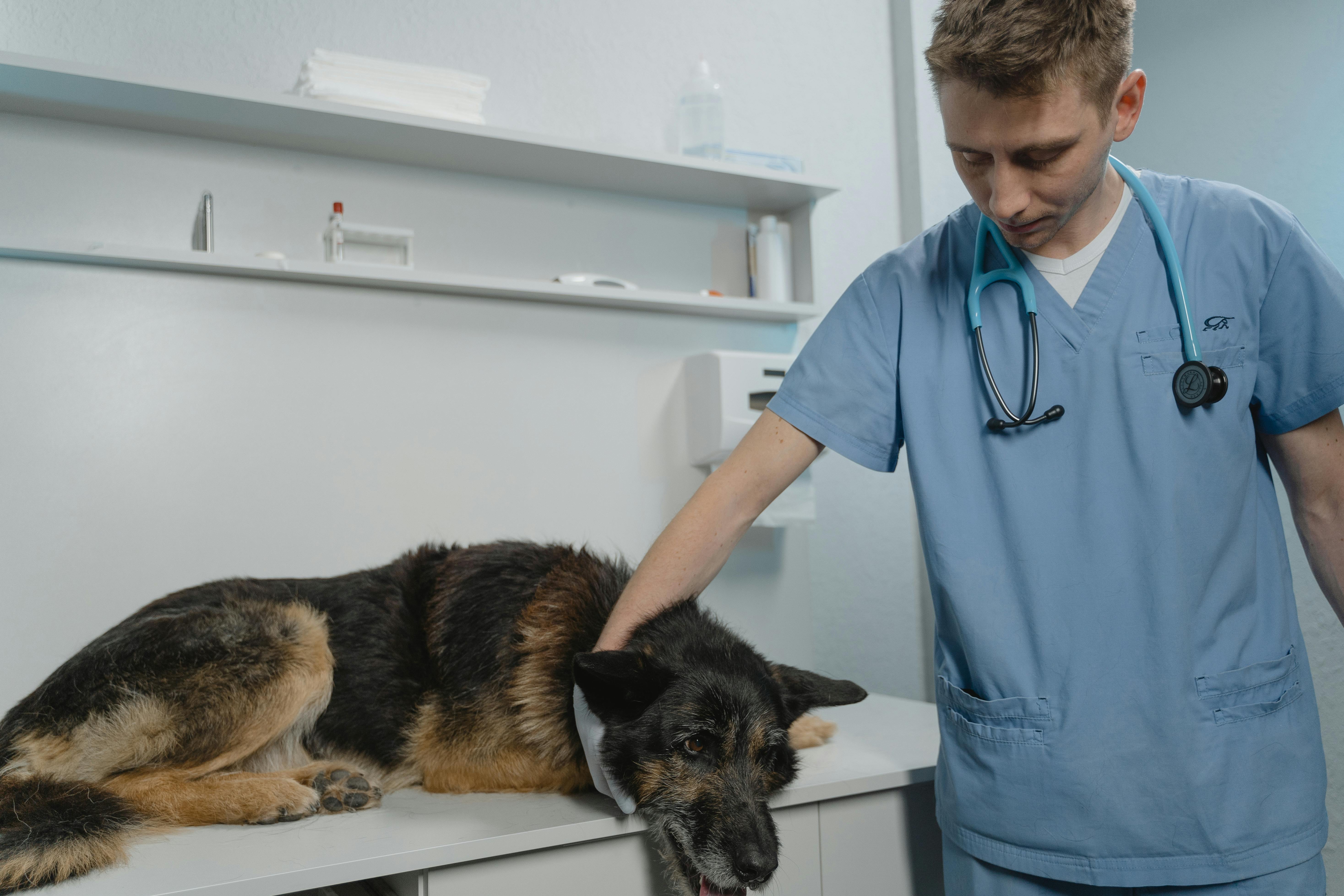Page Not Found!


Can Dogs Eat Pig Ears?
As pet parents, we are always seeking healthy, satisfying, and safe treats for our furry companions. One common choice you may have come across in stores or discussions with other dog caregivers is pig ears.
This article delves into the nutritional content, advantages, and potential hazards of pig ears for dogs, enabling you to make well-informed, confident choices regarding what enters your dog's diet.
Nutritional Benefits of Pig Ears for Canines

Pig ears offer more than just a delightful chew. Here’s why some canine parents appreciate them:
Rich in Protein
Protein is crucial for your dog’s development, muscle maintenance, and immune system. Pig ears are naturally packed with protein, providing a satisfying, nutrient-rich treat.
Optimal Fat Levels
Despite being fatty, pig ears supply energy and aid in nutrient absorption. However, regulating portion sizes is essential, especially for dogs prone to weight issues or pancreatitis.
Promotes Dental Health
The chewing action helps remove plaque and tartar, supporting healthier gums and fresher breath. It also offers mental stimulation and contentment to your dog.
Contains Essential Nutrients
Pig ears may include essential vitamins and minerals that enhance your dog’s overall well-being, making them a balanced treat when given occasionally.
Now that we understand the nutritional value, let’s explore the reasons behind the popularity of pig ears as a treat in numerous households, going beyond their labeled content.
Potential Benefits of Feeding Pig Ears

From promoting oral hygiene to providing mental stimulation, pig ears can have various benefits beyond just being a treat.
Supports Dental Care
Chewing on pig ears can aid in reducing tartar buildup and strengthening the muscles in the jaw. Regular chewing might lower the risk of dental issues.
Offers Cognitive Stimulation
Chewing is a soothing and mentally stimulating pastime for dogs. It helps combat ennui, anxiety, and uneasiness, particularly for energetic or solitary dogs.
Nutritious Natural Snack
Pig ears are a treat with a single ingredient. When ethically sourced, they are devoid of additives, preservatives, and fillers, making them a wholesome, minimally processed option.
Are Pig Ears Always Safe, Though?
Despite their advantages, pig ears may not be suitable for every dog or situation. Like any treat, they come with some potential drawbacks that pet owners should be aware of.
Risks and Safety Concerns

While pig ears can have benefits, there are several risks that should be considered:
Choking or Obstructions
Choking or blockages can occur with large pieces or if a dog chews aggressively. It's important to supervise your dog while they chew, especially if they tend to swallow quickly instead of chewing properly.
Bacterial Contamination
Previous recalls have shown instances of salmonella contamination in certain commercially available pig ears. Choose pig ears from reliable brands that adhere to strict food safety regulations.
Digestive Issues
Due to their fat content, some dogs, particularly those with sensitive stomachs or pre-existing conditions, may experience diarrhea or vomiting after consuming pig ears.
Possible Allergies
While uncommon, some dogs might have allergies to pork. Introduce pig ears gradually and observe for any signs of itching, vomiting, or digestive discomfort.
How to Safely Feed Pig Ears

If you opt to try pig ears, adhering to a few wise tips can assist you in maximizing the advantages while sidestepping potential issues.
Opt for High-Quality Choices
Choose natural pig ears devoid of artificial preservatives, dyes, or flavors. Seek out brands that conduct contaminant tests and ethically source their products.
Supervision is Key
Always supervise your dog during chewing to prevent choking or ingestion of large, undigested fragments.
Moderate Feeding
Regard pig ears as an occasional treat, not a daily indulgence. Typically, once or twice a week suffices, contingent on your dog’s size and well-being.
Customize to Fit Your Dog’s Requirements
Smaller breeds, elderly dogs, or those with specific dietary constraints may need substitute options. Consult your veterinarian to determine the most suitable choice for your unique dog.
Seek Professional Advice
Prior to introducing any new treat into your dog’s regimen, a brief consultation with your vet ensures compatibility with your dog’s distinct health profile.
The Bottom Line
Yes, dogs can eat pig ears, and when acquired responsibly and given in moderation, they can serve as a greatly satisfying snack. Pig ears not only aid in dental health but also offer mental stimulation and protein, combining taste with utility.
Here at Dog Chits, our pig ears consist of a single ingredient without any fillers, synthetic preservatives, or undisclosed extras, just natural, crispy delight that your dog will adore.
🐾 Ready to pamper your furry friend? Discover our pig ears product and see why dogs are so fond of them.
Frequently Asked Questions (FAQs)
1. Are pig ears safe for all dogs?
Pig ears can be safe for most dogs when given in moderation, but they’re not suitable for every pet. Dogs with allergies to pork, sensitive stomachs, or a history of pancreatitis may react poorly. Always introduce new treats gradually and consult your vet.
2. How often can I give my dog a pig ear?
Pig ears should be offered as an occasional treat — typically no more than once or twice a week. Overfeeding may lead to weight gain or digestive issues due to their fat content.
3. Do pig ears help with dental health?
Yes! The chewing action can help reduce plaque and tartar buildup, promoting healthier gums and fresher breath. Pig ears also provide mental stimulation and help relieve boredom.
4. What are the risks of feeding pig ears?
Possible risks include choking, digestive upset, and bacterial contamination (like salmonella) if sourced from unreliable suppliers. Always supervise your dog while chewing and choose treats from reputable brands.
5. How do I choose the best pig ears for my dog?
Look for single-ingredient pig ears with no fillers, preservatives, or artificial additives. Ethically sourced, tested products from trusted companies are safest. At Dog Chits, our pig ears are clean, natural, and made for worry-free snacking.
FOLLOW FELLOW DOGGIES ONLINE @DOGCHITS









